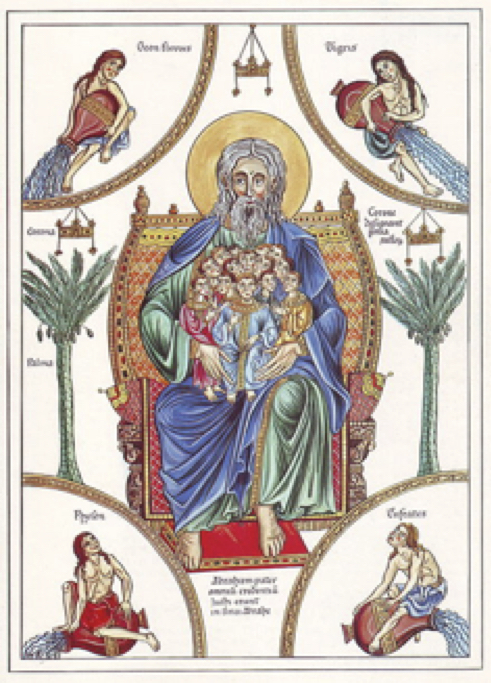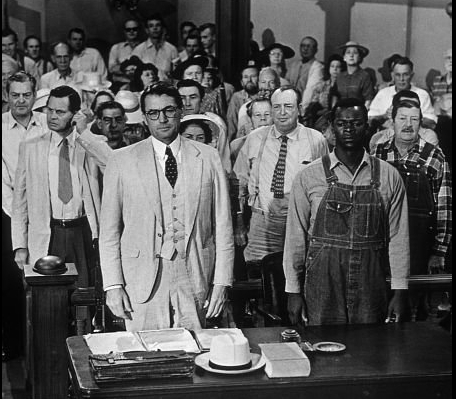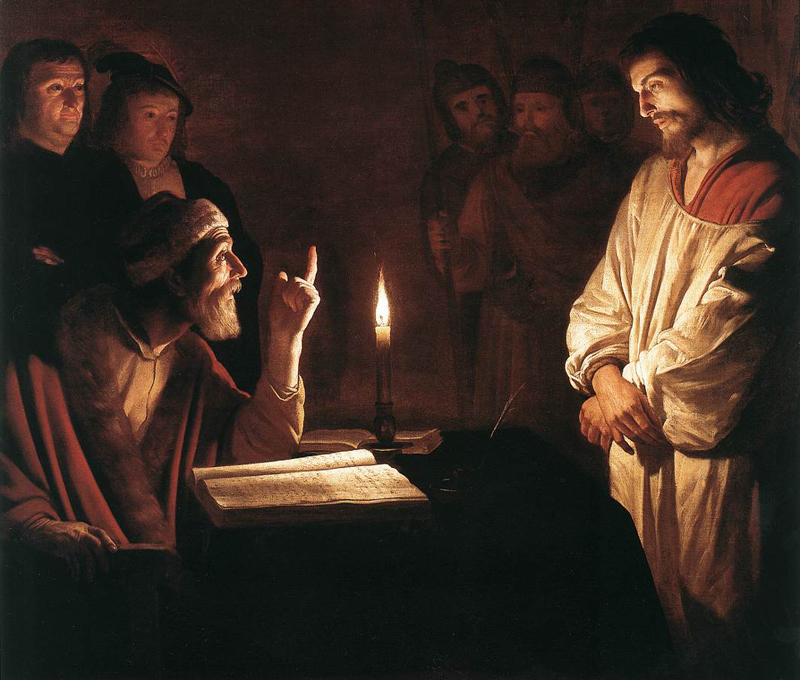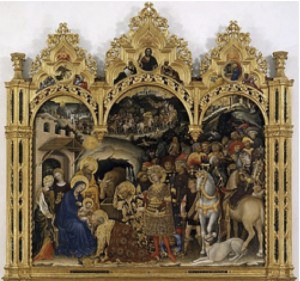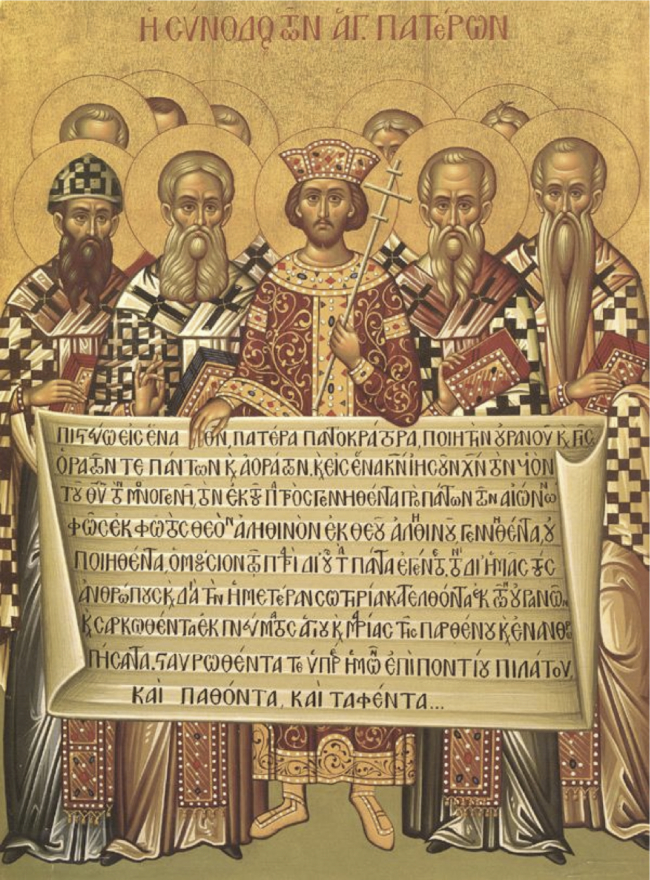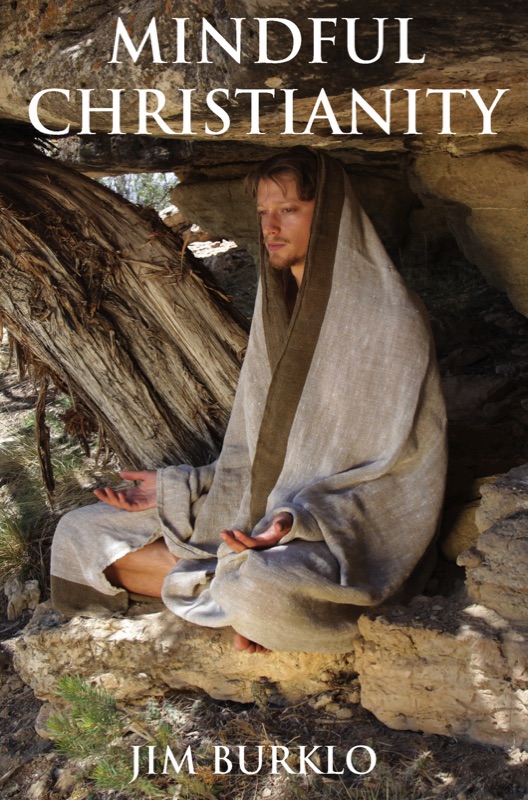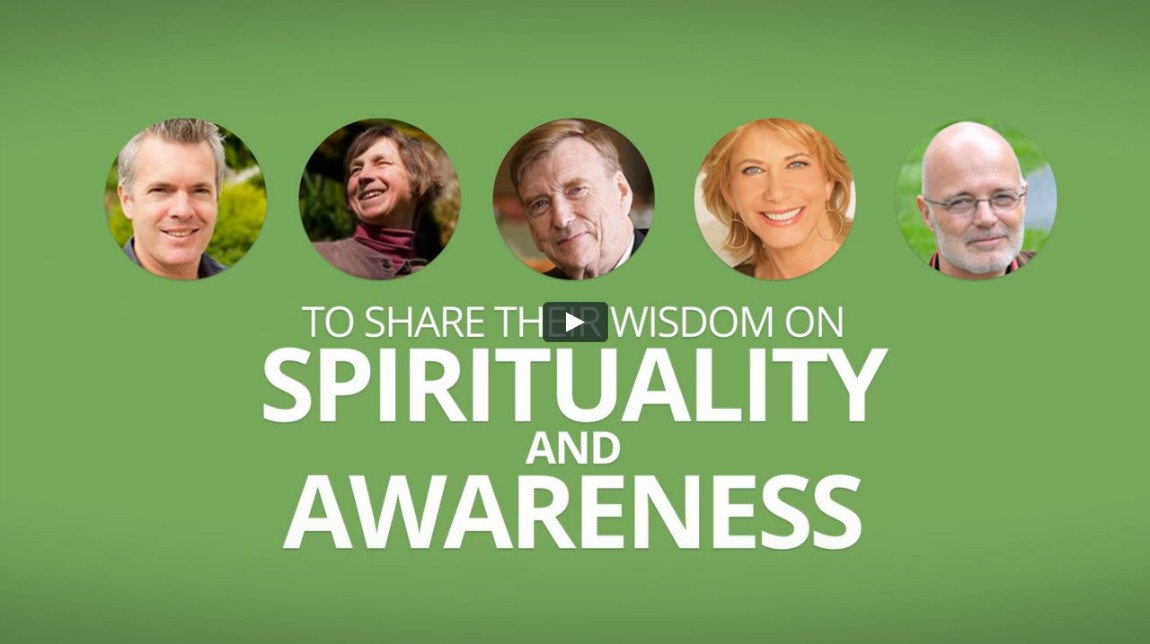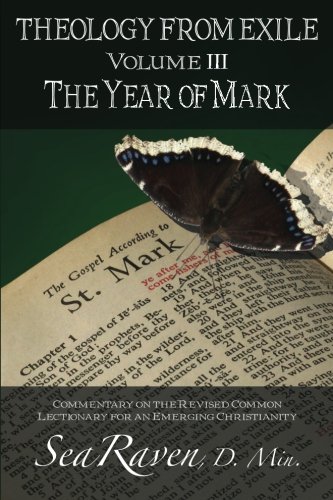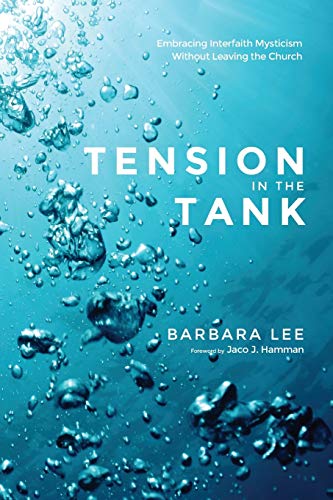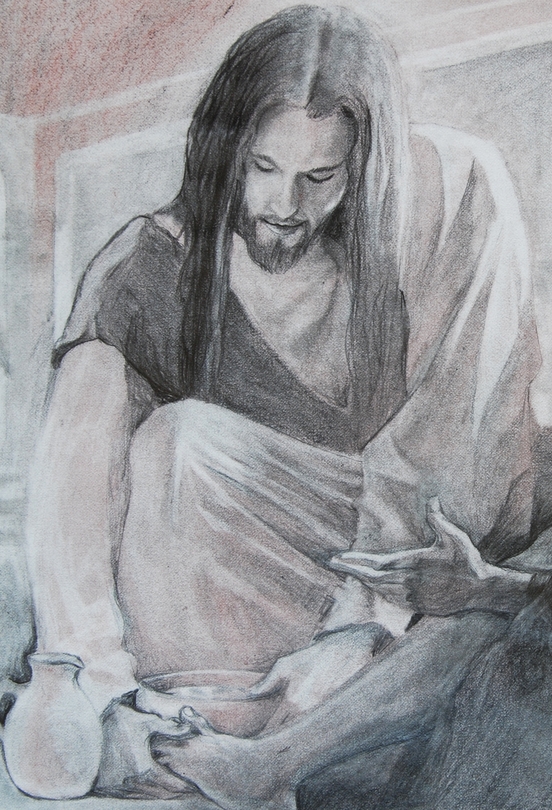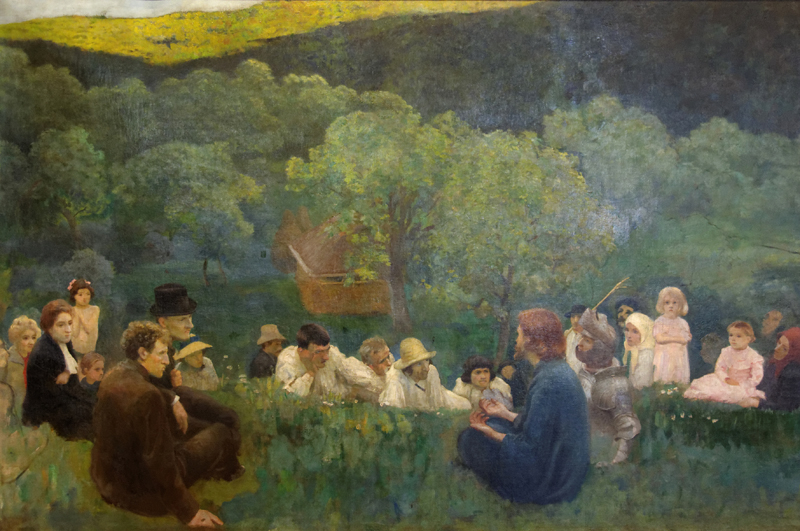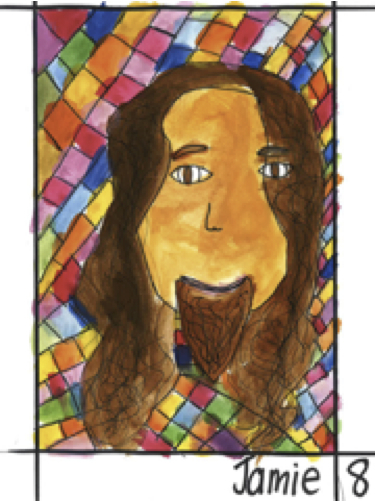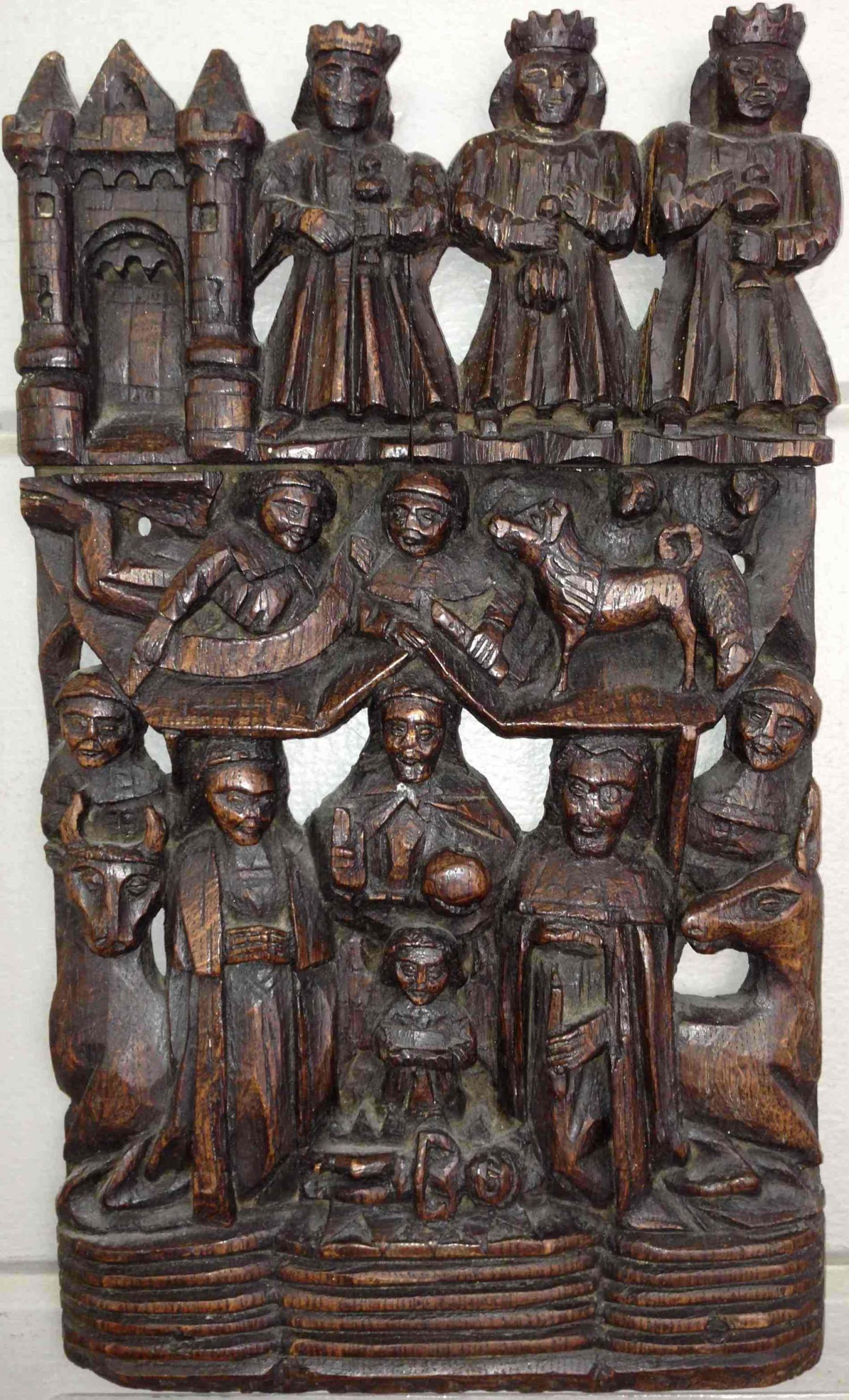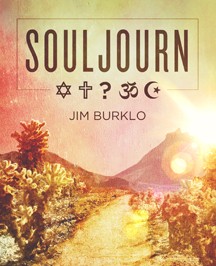From the Greek word, hypocritis, the hypocrite is a ‘play actor.’ While misfortune is befalling us on a massive scale these days, true tragedy is the result of the hypocrite who has the choice to decide to act otherwise.
The Problem with Blessings and Curses
“Have a blest day?” What in this world does that mean? Better luck or good karma, instead of bad? In the ancient world, denoting someone as “blest” was a way of expressing a deity’s special favor towards that person. If that sounds quaint, there are still plenty of people today who believe they can curry favor or improve the odds of achieving more blessings than curses; while politicians routinely conclude their speeches by invoking the Almighty to bless the good ‘ol USA. There’s just one problem. It doesn’t work.
Reinhold Niebuhr's brother, H. Richard, argued for faithfulness to the example of Jesus's nonviolence, while Reinhold believed this was naive and unrealistic in an imperfect world. H. Richard was the purist to the Christian faith, believing that following the Golden Rule, no matter the consequences, is what Jesus and God called us to do -- the success of the mission being in God's hands rather than our own. Reinhold, however, looked at the more practical side of things, substituting his or the world's idea of what was possible and changing his ethics accordingly. H. Richard thus trusted more in the providential moral arc of history as M.L. King, Jr. , would call it rather than a realist's version of what humans believe is attainable given their corrupt nature. In essence, H. Richard focused on the power of God's grace to transform our spirits and the world for the better, while Reinhold accepted a more cynical view of our ability to be radically changed as a specie.
Second in a Series exploring the shared Abrahamic roots of three faith traditions
In a world so filled with forced migration and walls of division, the three Abrahmic faith traditions can share a common pilgrimage of faith over belief. It is an act of trust. Put another way, it is an act of submission that draws one into another kind of journey. In this sense, all children of Abraham are "muslims."
A Series exploring the Shared Abrahamic roots of Three Faith Traditions, Part I: Jewish Roots
A Presbyterian politician who wants to be the leader of the free world claims to have written a great book; second only to the Bible. He has promised to “protect Christianity,” and ban all Muslims outside the United States from entering. It remains unclear if he expects all radical Jihadists to self-profess at the border; instead of -- say -- swearing to be as Presbyterian as he is. Beneath the superficiality of such political idiocy, an appreciative consideration of the shared Abrahamic roots of three great faith traditions might be helpful in finding ways to reconcile the false divisions that the most strident voices of ignorance seem to propagate. This is the first in a series of commentaries that attempt in some small way to make such a modest attempt. It begins where it all began; with Jewish roots and the mythic Hebrew character of Abraham.
Interfaith peacemaking cannot be limited to a religious “program.” Rather, it is integral to the well-being of all humankind. This vision encompasses both ethical practice as well as public policy-making in our local communities. It challenges faith communities to develop spiritual grounding for people that enables them to hold their own religious truths, while at the same time respecting the religious truths of their neighbors.
Racism, the Imbalance of Power, and the Response of the Prophetic Voice
The literary world is in an uproar, learning that a prequel to Harper Lee's great American novel, "To Kill a Mockingbird," depicts the beloved Atticus Finch as a southern white racist. Is it possible that, like the fictional character, we can ever evolve and change?
A Spiritual Path for Personal Transformation
An aging Vietnam vet suffering from PTSD returns to Da Nang after 50 years in order to try to do something for those still afflicted generations later by the lingering toxic affects of Agent Orange. His nagging conscience leads to a redemptive act of self-healing and a common good. Spirituality is often an amorphous and bandied about term that too often connotes the merely religious type, as somehow distinct from those who are not. Instead, I appreciate something as equally shared as it is often neglected, namely the human conscience and our sometimes-belated conscious awareness of it.
A Partner Organization of ours, Progressive Christians Uniting, created this excellent curriculum to help people grow in their communities to care for the earth both personally and socially. These resources are for small group formation. Thank you friends at PCU for sharing! Check out our new "Go Green" action item under Resources on the home page for more tips and info on climate change.
(This is adapted from emails I sent to students, faculty, and staff in the course on mindfulness I'm teaching at the USC Keck
Satire and Blasphemy in the Teachings of a Galilean Sage
Radical religious extremists with a distorted view of Islam commit horrific acts of terror, executing the staff of a small satirical French publication. The satirists had dared to depict the Prophet Mohammed in cartoon caricature; all the while lampooning those misbegotten adherents who in turn regard such irreverent acts as blasphemous. The Western world reacts with outrage and defiance to such an affront. World leaders join a million person protest and unity march through the streets of Paris, chanting “Je Suis Charlie,” in defense of freedom of speech, and on behalf of the publication’s name. While a clear distinction might be drawn between the use of words and the vehement reactions they may incite, more profound underlying questions remain. While anti-blasphemy laws are common in Muslim countries, countless other "secular" countries have laws against the defamation of religion, as well. Once the dust settles and more thoughtful discussion ensues, one might ask what constitutes the differences between hate speech and freedom of expression? This commentary consider s esus' use of what was deemed blasphemous satire, it's intended purpose, and well-known consequences.
The challenge for a progressive Christian who has moved beyond such notions as virgin births and gods disguised in human form come to save us from ourselves is to remember that it is as much a historical development, as it is a theological one. That is, the attribution of a “Christ” title accorded a very human Jesus constitutes the imaginations -- if not machinations -- of an early Church; consisting of very human, second-generation followers of a 1st century Galilean peasant sage and itinerant preacher. And who all but drowned out the authentic voice of the one who was once born and dwelt among humankind. Such an assertion is simply based on the fact the historical Jesus never self-identified as the “anointed one,” the Christ. As such, if one were to remove the Christ-title from the various birth narratives of those secondary traditions of this religious movement, what would remain of the “Christmas story” that has become as prevalently assumed, as it has been unexamined? If we took the Christ out of Christmas, what might remain of the voice of one who was born and dwelt among us? You can read more here.
An Open-Ended “Creed” for a Progressive Christian
I have often said so-called “progressive Christianity” is a notion forever in search of its own elusive definition; and that’s as good a way of explaining it as we may be able to find. We live in a post-modern world that considers the age of Enlightenment to be a post-facto reality. As such, “progressive” thinking in an age of Reason has pushed the boundaries of nearly every facet of life, except one: those ‘traditional’ or ‘orthodox’ beliefs, based on certain creeds, doctrines and dogma that still dominate what it presumably means to be “Christian.” It hardly needs to be said that it is also why so many one-time believers have outgrown their one-time faith. Calling them merely “lapsed” is misleading. So much has elapsed in the world we have all come to know and take for granted, that the once-dominant Church -- -- despite all its denominational varieties -- has fast become a post-modern relic. Yet any critical examination of how Christian scriptures developed and how the history of the tradition evolved will quickly demonstrate how it has always been in a constant state of flux. Or, if you like, “progression.” It was only when it stopped and got stuck that we traded in the tent for a temple, and snuffed the life out of a movement that is progressive by its very nature. What then would constitute an honest statement of belief for at least this "progressive Christian?"
Mindful Christianity is mysticism: the experience of a human being in spiritual union with the divine, seeing each other with the same eye. The observer within you, when you are deep in mindfulness meditation, is God. God is lovingly attentive toward your every experience, every feeling, urge, and thought. In mindfulness practice, God notices all of that is going on inside of you, with deep compassion and without judgment.
Ian interviews 31 experts including Bishop Spong and Matthew Fox
Beyond all the things that divide us, both from ourselves and each other, awareness brings us back to our essential oneness. In June 2014, Ian Lawton, founder of soulseeds.com, had a series of transformative conversations with renowned spiritual leaders from many traditions on the topic of awareness. Whether you caught the conference live or not, you can now access any or all of it in the way that best suits you.
The political, social, spiritual, and economic history of most of the Western world has been defined by the belief articulated in the literal application of John’s gospel to personal and social piety. If Christianity is to survive with any relevance to postmodern, twenty-first century realities, the theology of condemnation and substitutionary atonement associated with the fourth gospel has to be scrapped. Not only is the future of Christianity at stake. This theology threatens the further evolution of human consciousness, and life as humanity has known it thus far on Planet Earth.
Ultimately, Tension in the Tank is about faith that is relevant, secure and ever-evolving. It is a guidebook for building meaningful relationships with Spirit, self and each other. Radically open to possibility and wonder, Tension in the Tank offers the opportunity and challenge to live our faith in such a way that the walls between us come down and we become pursuers and enactors of universal justice.
The idea of a second coming of Christ is a mystery, if not explicitly controversial. Jesus’ followers apparently believed he would return during their lifetime after he was crucified. When that didn’t happen, later followers gradually changed the belief into an indefinite “someday.” After two thousand years of waiting, most Christians no longer look for it to happen in their lifetimes and acknowledge that Jesus may have been speaking metaphorically about his return. It is just as likely that those words were put into Jesus’ mouth by the gospel writers themselves. Wishful thinking?
The terms faith and beliefs are sometimes used interchangeably, but I think it is useful to make a distinction between them. Beliefs are things you think are true, like “I believe in God.” “I believe that there is life after death.” These are improvable opinions (or they would be accepted by all as “facts”). A list can be made of beliefs.
CLEAR is what I want to feel and be when it comes to something that means as much to me as FAITH. I want to be at peace with what I believe and choose to say and do, with regard to my way of living in faith. I want to own it whole-heartedly. I don’t want to apologize or make excuses for beliefs that don’t make sense, saying things like, “You just have to take that in faith. Someday it will make sense to me, even if it doesn’t now. God’s ways are not our ways.” With Clear Faith, I am at peace.
Series on the Teachings of a Galilean Sage: The Sermon on the Mount, PART II
The social world order seems to erupt in chaos and violence on a regular basis these days. Regimes hold on to political power at all costs, while those who are more often than not economically oppressed demonstrate and confront government forces with little more than their willingness to stand in opposition. If this all sounds like pure political commentary, consider this: The socio-political landscape in first century Palestine, CE, wasn’t much different. The practical means by which the imbalance of power was wielded by some over others may have been rather primitive by today’s technological standards; but the end game was the same. The itinerant Jewish peasant teacher and sage who would long be remembered as uttering such impractical non-sense as “turn the other cheek” and “love your enemy,” was the same historical figure that was executed as an insurrectionist, not a “resurrectionist.” As I’ve put it bluntly elsewhere, Jesus didn’t die for our sins, but because of them. But the historical Jesus’s message deviated so radically from the “you have heard it said, but I say to you” literary device employed that it constituted a world view that did not simply turn everything upside down; but attempted to right what becomes a distorted “default” assumption of human nature that too easily concedes it is only human instinct to regard ourselves as prejudicial and self-centered creeps. Jesus’ teachings to “turn the other cheek” and “love one’s enemies” is an invitation to an inward journey of the self; and a call to reclaim our true huma n nature.
Many Christians today are increasingly unsure about how to “take” the Bible. To borrow from the childhood game “Mother, May I?” I’d suggest we take two giant steps back. We need to move ourselves back to challenge two assumptions that block our comfort with the Holy Bible.
Contrary to the custom of the period, Jesus accepted women among his followers. Although none of the women are ever identified as “disciples,” certain gospels passages indicate that some of them may have been equal to the disciples, particularly Mary Magdalene. Mark writes that women followed Jesus in Galilee and ministered to him (Mark 15:40-41). Like Mark, Matthew 17:55 refers to women who “followed Jesus from Galilee, ministering to him.” Luke 8:1-3 mentions that Jesus and the disciples were accompanied by women and he specifically mentions Mary Magdalene, Joanna, the wife of Herod’s steward Chuza, Susanna, and many others, “who provided for them out of their own resources” (meaning that they must have had considerable wealth). Jesus’ death and the events accompanying it mention the presence of women and some of those women witnessed the crucifixion, Jesus’ burial and the discovery of the empty tomb. Pope Benedict XVI considered it an obvious fact that “many women were also chosen to number among the disciples.”
Most people assume that the Bible is filled with stories of supernatural happenings and miraculous interventions. The accounts of miracles in the Bible are generally limited to three cycles of stories: the Moses-Joshua cycle in the Torah, the Elijah-Elisha stories that are recorded between I Kings 17 and II Kings 13, and the Jesus-Disciples of Jesus stories that are found in the four gospels. There is an occasional supernatural tale in other parts of the Bible, but these are the only areas where they are concentrated. Our concentration is primarily on the miracles that are attributed to Jesus in the gospels. The reported supernatural deeds performed by Jesus during his ministry can be categorized into four groups: cures, exorcisms, raising the dead, and nature control. Interestingly, each type of miracle that is attributed to Jesus in the gospels also occurred in the Moses-Joshua and Elijah-Elisha stories.
A Commentary for Thanksgiving in an Age of Anxiety
American retailers have essentially pre-announced that the annual Thanksgiving observance -- when we presumably pause to gratefully remember everything we have -- has been cancelled so bargain shoppers can get an even earlier jump-start on their holiday shopping for all the things we don’t have yet. Meanwhile, halfway around the world a typhoon of record proportion hit landfall only a few weeks ago; nearly wiping an island nation off the face of the earth, and leaving those who survived with virtually nothing. Then last week an unseasonable swarm of twisters flattened whole towns across the Midwest. By comparison, it all makes the plight of those first pilgrims facing the harsh realities of their first Thanksgiving in a brave new world look like a walk in the park. And, all the while, the airwaves and media have been filled with docu-dramas and documentaries commemorating the half-century mark of those events that shattered an age of relative innocence for those of us old enough to remember it; ushering in an age of extraordinary upheaval and anxiety, starting with what social critics and historians alike attribute to the assassination of JFK. Juxtaposed and taken together, these events represent a seeming un-reality that hasn’t really abated much in the last fifty years. We live in an age of anxiety. Jesus masterfully taught in the philosophical tradition known as Jewish cynicism, with such parabolic tales and quaint-sounding imagery as the “lilies of the field.” And he did so at a time and age that – while seemingly ancient to our modern way of thinking – may not have been all that different from our own anxious age. Consider then our fretful, misbegotten ways, and the wild lilies of the fields.
This paper addresses recent discoveries of previously unknown Christian scriptures which predate the orthodox canonical gospels of Mathew, Mark, Luke and John. Surprisingly, these earlier writings reveal a totally different kind of Christianity - one which could very well speak to the needs of the lost Christians of today.
“Christian” A-theism Series, Part III
Part III of this "Christian" A-theism Series explores new possibilities to be found in pushing beyond the constraints of theism and a-theism; and the blunt and limited question of believing or not believing in a “theistic” notion of “God.” We typically fashion our notion of anything we deem sacred “Oneness” in anthropomorphic terms, so we can more easily relate to the idea. The Christian then proceeds to incarnate that God notion with a Christology in which Jesus is construed as a co-eternal mediator and – peculiarly – a substitutionary sacrifice. But for those progressives for whom such a construct is no longer viable or credible, what might still be found amidst the theological rubble in a post-modern – even post-deconstructionist – age? Indeed, what may have been there from the start of the entire imaginative process; known in the earliest days of a pre-Christian movement simply as the Way? As near as we might be able to discern it with our own creative and interpretive imaginations, what resemblance might it bear to the “voice-print” of an extraordinarily imaginative character we might want to befriend?
Part One in this series considered the notion of “God,” or “gods,” as the single most elusive idea the human imagination has ever concocted or tried to fathom. But we typically constrain ourselves, thinking only in theistic terms; and fashion our notion of “God” in an anthropomorphic image so we can more easily relate to the idea. We ascribe to such a being all kinds of desirable characteristics that might comprise this composite character. The Christian then proceeds to incarnate that idea with a Christology in which Jesus is typically construed as mediator and chief negotiator; to the extent such a savior is willing to atone for all our wretchedness and secure our own immortality in another existence. It’s all pretty fanciful stuff. But for those progressives for whom such a construct is no longer viable or credible, it is not simply a question of what remains amidst the theological rubble, but what more, or other, might yet be discovered? As such, we ask how we might speak of such things. What language might we use?
Perhaps being a souljourner requires the same willingness to look foolish that is required in order to learn a language. I remember the crazy stuff I said when I was studying Spanish in Mexico years ago. I certainly embarrassed myself - and turned others beet-red a time or two, as well. But as long as I showed humility and a willingness to get it right the next time, people seemed to cut me lots of slack. Perhaps the most important ingredients in etiquette are genuine openness, curiosity, and an attitude, if not yet a correct appearance, of respect.
We worked all day. Dad and Rachel were on one team, Father Crespi and I were on another, refilling tanks, cleaning up trash around them, and placing new ones. Five new blue flags, marking the new tanks, waved defiantly against the demon of thirst, and fluttered in the breeze over the desert at sundown that evening. The crew enjoyed a dinner at Rachel's house prepared by the Women's Society of the Federated Church.





